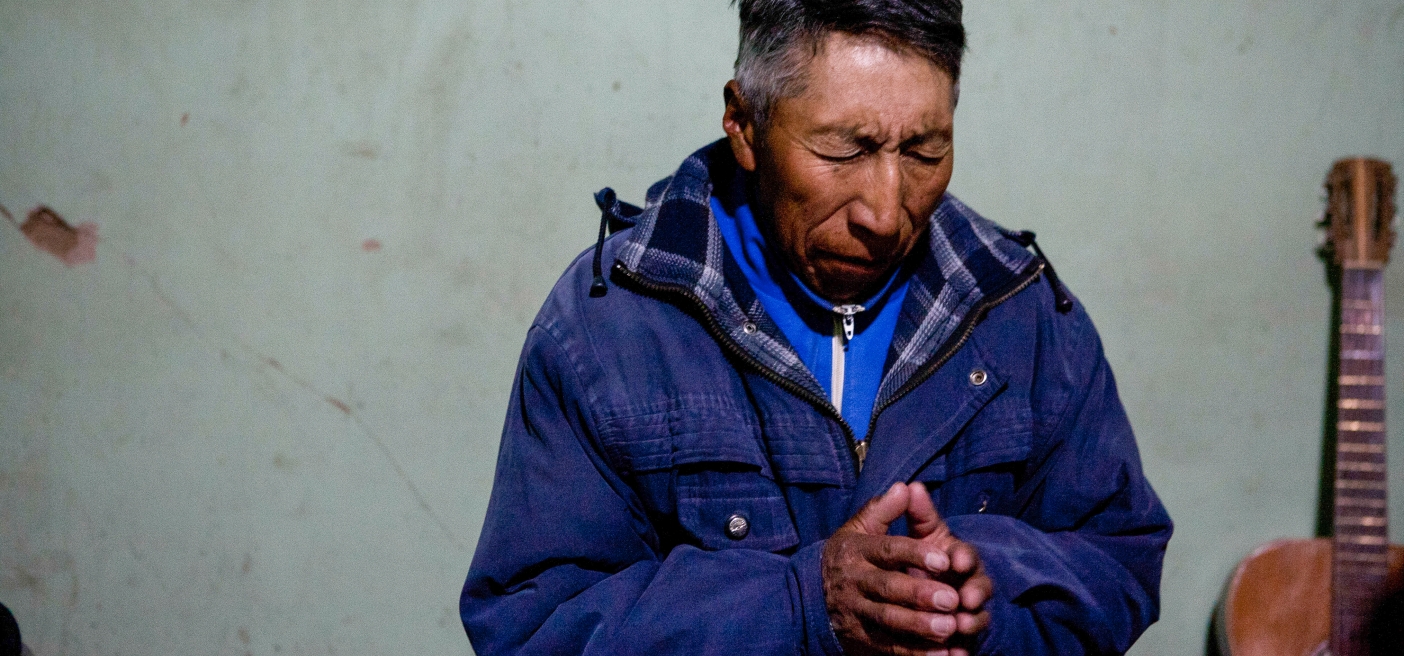4 Reasons Churches Must Pray for Missions

This article by Jerry Conner first appeared at IMB.org Go HERE for the original article.
“The man who mobilizes the Christian church to pray will make the greatest contribution to world evangelization in history.”
—Andrew Murray
The mission of advancing the gospel is the great work of the church, and prayer is the engine that moves it. One of the greatest resources the church has for advancing the gospel is the ability to come before God in prayer and plead for what is already on his heart—the growth of his kingdom in the world.
James Fraser (1886–1938), missionary to the Lisu people of China, once said: “I used to think that prayer should have the first place and teaching the second. I now feel it would be truer to give prayer the first, second, and third places, and teaching the fourth.”
Fraser dedicated his life to the teaching and translating of the Scriptures until he died of cerebral malaria at the age of fifty-two in Baoshan, Yunnan, China. His dedication to the Scriptures was never doubted. He recognized the absolute necessity of prayer in the missions endeavor.
With that in view, here are four reasons why churches must pray for missions.
1. Jesus taught his disciples how to pray for missions and modeled it as he trained them.
Early in his training of the disciples, Jesus taught them how to pray (Matt. 6:9–13). Then later, after facing the challenges of ministry, they came back to Jesus and asked him to teach them how to pray. He brought them back to the same prayer in which the petitioner first cries out, “Your kingdom come” (Luke 11:2 ESV).
Later, Jesus would model how spiritual battles to accomplish the mission would only be won by faith through prayer as he cried out “not my will, but yours, be done” in the Garden of Gethsemane (Luke 22:42 ESV).
Before Jesus sent out the twelve or the seventy-two, he pointed their faces toward heaven in prayer and turned disciples’ hearts into laborers. Therefore, when we start churches, before community engagement occurs, we must bathe the community in prayer. The church must never lose sight that to train disciples to pray is the first step in bringing the gospel to the mission field.
2. Prayer moves the heart of the church toward the heart of God for his mission.
When Jesus sent out the disciples to all the places he himself planned to visit in Luke 10, he told them to pray that God would send workers into the harvest field. Then he said “Go! I am sending you” (Luke 10:3, NIV) as the answer to their own prayer.
My wife and I were part of a church plant in which prayer was an intentional part of the foundation. A church where men gathered weekly for early morning prayer and all-night prayer gatherings were not uncommon. In these times, God did something extraordinary, more powerful than any small group meeting or corporate worship experience. It was then that God-shaped our hearts for the world. Out of that group, missionaries were sent, church planters birthed, and a church’s heart was shaped for the kingdom.
Years later, when we started a church in a different neighborhood, we sent the plant team out to pray. We called it “ground work.” It started with prayer walking for a few months, then we went door to door praying with people for the needs of the neighborhood and their families. It was a beautiful way for a church to bless a community. We were able to demonstrate the heart of God to people by praying for their concerns. Very few people would close a door to prayer.
3. Prayer opens the doors in the world for the gospel to advance.
In Colossians 4:3–4, Paul asks the church, “Pray also for us, that God may open to us a door for the word, to declare the mystery of Christ” (ESV). Prayer opens opportunities for the gospel to be shared that previously seemed closed.
In prayer, the impossible becomes practical. Like when Peter was imprisoned in Acts 12, the church was praying and God released Peter, opening the iron gate leading into the city (Acts 12:10 ESV). In that experience, Peter realized that nothing would hold back the kingdom of God from advancing as the church prayed.
It is prayer that helps us connect with people who are open to the gospel. It is prayer that leads us to the right place at the right time to take the steps that only God could orchestrate. Prayer connects the church to the activity of God who is empowering his people to advance the message of his kingdom.
4. Prayer empowers the message of those going to share the gospel clearly and without fear.
Without prayer, fear will rule the hearts of those sharing the gospel. Paul knew his own need for courage to proclaim the gospel. In Ephesians 6:19–20, Paul asked the church, “Pray also for me, that whenever I speak, words may be given me so that I will fearlessly make known the mystery of the gospel... Pray that I may declare it fearlessly, as I should” (NIV).
Paul faced his own timidity and overcame his fears through the prayers of the church. Through corporate prayer we realize no one is alone, and we strive together through the power of the Holy Spirit. When the church prays, the Holy Spirit increases the spiritual fervor of the body that affects all its parts.
It is imperative that a church prays and engages in the spiritual work of kingdom advancement. When the church prays, Christians begin to get a clearer glimpse of the mission. It is by prayer that God’s people move closer toward the heart of God for the world. It is by prayer that fears about sharing the gospel are defeated.
Missions move in the wake of prayer. May we be a church that rises up by falling to our knees in order to advance God’s kingdom to all nations.
Jerry Conner serves as the pastor of global outreach and church planting at Pleasant Valley Baptist Church in Liberty, Missouri.

The mission of advancing the gospel is the great work of the church, and prayer is the engine that moves it.

